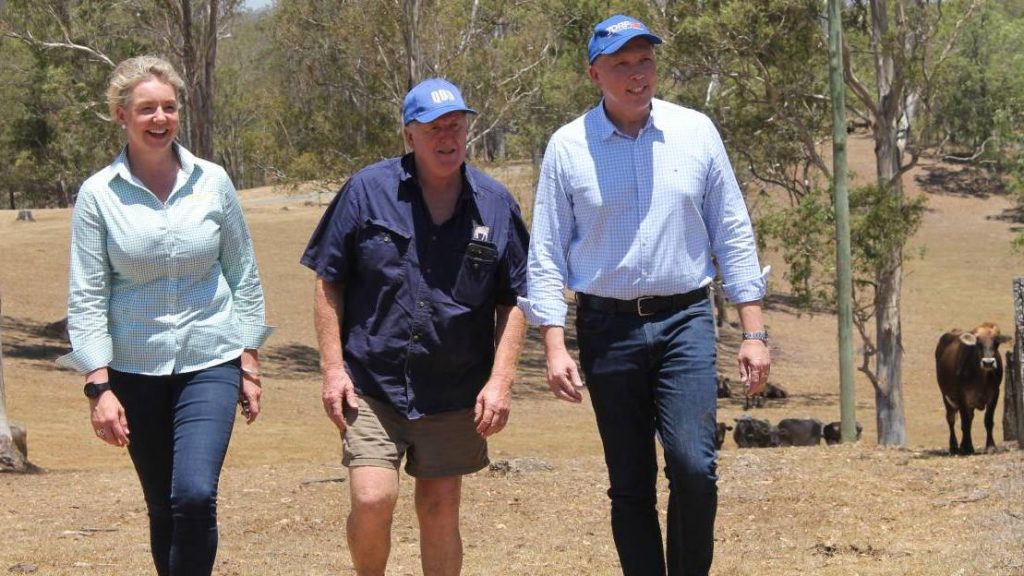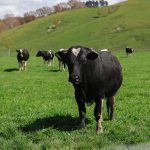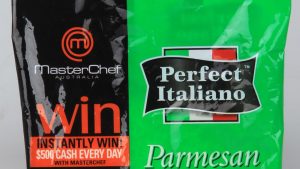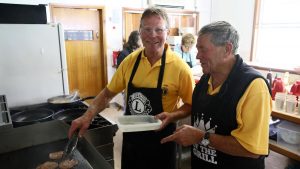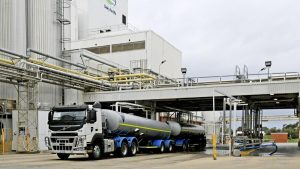
My Dad was one of those small businesses undercut by large multinational processors offering prices to his customers below the wholesale price they offered him.
This is in part why I have spent a lot of my political career fighting and working for better competition law to address the power imbalance between small businesses, such as dairy farmers, and the big end of town, and why I will continue to do so.
The Australian dairy industry is facing some challenges at the moment. Drought and high input costs of water, fodder and electricity are having a real effect on our dairy farmers.
Despite historically high farm-gate prices at the moment, farmers are not seeing that turn into profit, because of the cost of production.
I’ve heard from dairy farmers who are losing $300 a day, feeding and milking their herd. The hard reality is that some are making the awful choice to walk off the land.
Last week, as a result of an ACCC investigation, Coles will be paying over $5 million for distribution to Norco farmers. The ACCC described this as “an egregious breach of the Australian Consumer Law.”
But this is not the only example of bad behaviour in the dairy industry. Right now, under a voluntary Code of Conduct, processors are able to lower the price they pay for milk already received, months after the farmer has banked their payment.
This is cruel and unacceptable, and from January 1 these kinds of practices will be illegal.
The Government has taken a major step forward in addressing the long held power imbalance between processors and dairy farmers by implementing the mandatory Dairy Code of Conduct.
In 2018 the ACCC recommended a mandatory Code for the dairy industry following the Dairy Inquiry. The Coalition Government committed to progress a Mandatory Code in March 2019, with two rounds of consultation on what the Code should contain happening in late 2018 and early 2019.
Following my commencement as Minister for Agriculture, a third round of consultation commenced. This consultation document reflected previous feedback, but it was clear changes were needed.
There are eight unique dairying regions across Australia, each with their own priorities and challenges, but I want to congratulate the industry for the maturity and patience it has shown in working together to deliver a Code to support all regions.
This is a Code for farmers.
The Code will improve transparency for both the domestic fresh milk supply regions and regions focused on export markets.
The Australian dairy industry needs a fair go and the Code will deliver the basis for that.
However the Code will only go so far in helping an industry that is doing it extremely tough right now.
The drought has increased input costs and pushed farmers’ production costs above their farm gate prices-even in areas not directly impacted by drought.
There have been many “solutions” to fix the dairy industry at the moment including ideas around a floor price on milk.
Superficially it sounds like a silver bullet solution however, the vast majority of the Australian dairy industry is not asking us to do this, and tellingly it is also not a part of the dairy industry’s own recently launched Australian Dairy Plan. Ten reviews into the dairy industry over the past 10 years have also rejected a floor price.
The truth is that a floor price is bad economics and could potentially be terrible for the long-term viability of the industry.
So where do we go from here?
There are two underlying issues, the first is high input costs – high fodder and water prices in large part due to the drought, as well as other costs such as high electricity costs. The Government is delivering $22 million dollars in commitments to help dairy farmers tackle these costs, increase their margins and support a fair market.
The second is the price of milk in the domestic market.
The vicious $1 milk marketing campaign by the major supermarkets had terrible results for industry confidence, and the effects of that are still being felt.
Australian dairy milk is a valuable product which has been unduly cheapened so supermarkets could take market share from corner stores and other smaller retailers. The major supermarkets also implemented national pricing, which meant one national price disregarding the localised and varying costs of production.
The supermarkets have tried to rectify this situation by introducing voluntary levies on private label milk, but I would like to see a levy implemented across all private label items in the dairy cabinet.
That would be fairer and reflect the reality that farmers have no control over whether their milk goes to fresh milk, cheese or ice cream.
Good returns and good retail prices for milk will encourage investment but, to see this, we need the retail price of private label milk to be lifted.
New Zealand has been held up in recent times as an example of a thriving dairy industry. Aside from New Zealand’s natural competitive and climactic advantage which means that costs of production for dairy farms are lower, supermarket private label milk’s lowest price is NZ$1.75 a litre.
Australian consumers need to get around the idea of paying more for milk and dairy products. This Christmas we are being told by the supermarkets that we are all going to have to pay more for fruit, vegetables and meat, recognising that the drought is impacting the cost of production for those farmers. We need to do the same for dairy.
It’s a good thing that Australians are saying they want to pay more and support the Australian dairy industry – as long as the increase in cost goes directly to farmers. The best way we can all help our Australian dairy farmers is by supporting our Australian branded milk from local farmers and processors, rather than supermarkets’ own private labels.
I will certainly ensure the Government is doing all it can to support our Australian dairy farmers continue to produce the best products in the world, but we all have a role to play in supporting our dairy farmers. Our goal is to ensure safe, nutritious Australian dairy products for generations to come.
– Senator Bridget McKenzie is the Deputy Nationals Leader and the Federal Minister for Agriculture
